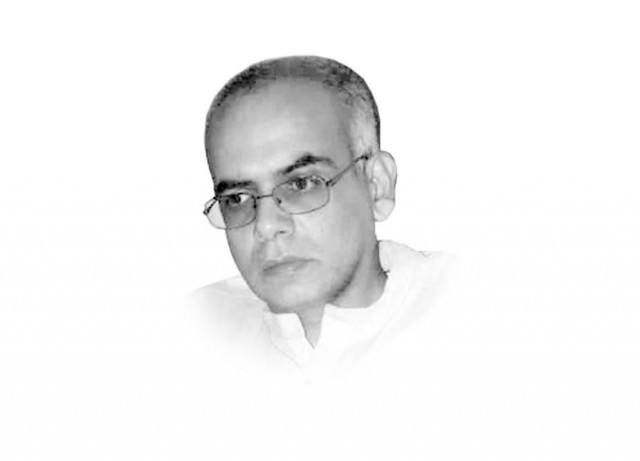Is the world really becoming a better place for all?
Our global economic system is visibly failing a large majority of people around the world

The writer is a development anthropologist. He can be reached at ali@policy.hu
One of the infographics tweeted by Bill Gates showed that the proportion of people living in poverty has declined from 94% in 1820 to around 10% today. This is an impressive claim and one which not only Bill Gates but a lot of other people have been propagating. The award-winning New York Times columnist, Nicholas Kristof, in a much-cited article ‘Why 2017 Was the Best Year in Human History’ had also quoted the above estimate. I’ve heard several World Bank retired economists within our own country, and elsewhere, similarly tout these figures.
It is quite understandable why the richest people in the world, and other staunch proponents of the market mechanism, and the current world order, would propagate the above assertion. Underlying this optimistic assessment of drastically declining global poverty is the endorsement of aggressive extension of free-market capitalism. The above claim also simultaneously undermines complaints about rising inequality as the same forces that deliver generous rewards to innovative entrepreneurs are also seen to be the driving force behind a steady eradication of poverty.
However, this enthusiastic narrative of the world demonstrably becoming a better place for everyone is quite problematic. At the methodological level, the trend that the aforementioned graph aims to depict is based on a historical comparison of global poverty rates over a hundred years. Such a comparison is quite difficult given that anything resembling a global database on poverty has only existed since the past few decades. Although there are still problems with the accuracy of global poverty assessments, any claims about global poverty rates around the world going so far back in time are extremely sketchy, as they are based on incompatible measures, and they rely on data which is available for only a handful of countries.
Moreover, most economists agree that the major global gains made in terms of eradicating poverty have largely occurred in China. China has hardly followed the Western economic system, and poverty alleviation in China has gone hand-in-glove with authoritarian rule and repression. But, if we take China out of the equation, the apparent global gains in poverty reforms become much more lacklustre.
Absolute global poverty has been declining. Vaccinations and healthcare improvements have increased mother and child mortality rates. Literacy rates are going up, as are several other development indicators. Yet, most of the global population is barely able to achieve a basic level of subsistence which is hardly enough to live a fulfilling life. We are also simultaneously seeing emerging threats of climate changes tied to exploitative and unsustainable production systems, which are posing new threats to the lives of multitudes of people hovering just above the poverty line.
It is good to see other academics, such as the anthropologist, Jason Hickel at the University of London, taking strong exception to euphemistic assertions of drastically diminishing global poverty rates. Prior to colonisation, Hickle rightly points out, most people lived in subsistence economies where they enjoyed access to land, water, forests, livestock and they could rely on robust systems of sharing and reciprocity. Even if they had little money, people didn’t need much money to live well. This way of life has been violently destroyed over the past few hundred years, as increasing commercialisation has compelled more and more people to become insignificant cogs in the global production mechanism.
Our global economic system is visibly failing a large majority of people around the world. Yet, a small global elite wants the rest of the world to think that the status quo is the best way forward for everyone. It is unfortunate that many well-educated, but not very rich people, also choose to believe this fallacy.
Published in The Express Tribune, February 8th, 2019.
Like Opinion & Editorial on Facebook, follow @ETOpEd on Twitter to receive all updates on all our daily pieces.












COMMENTS
Comments are moderated and generally will be posted if they are on-topic and not abusive.
For more information, please see our Comments FAQ